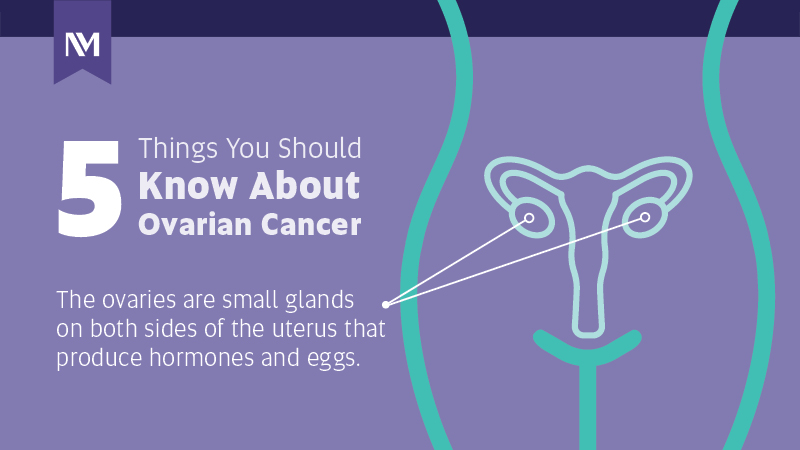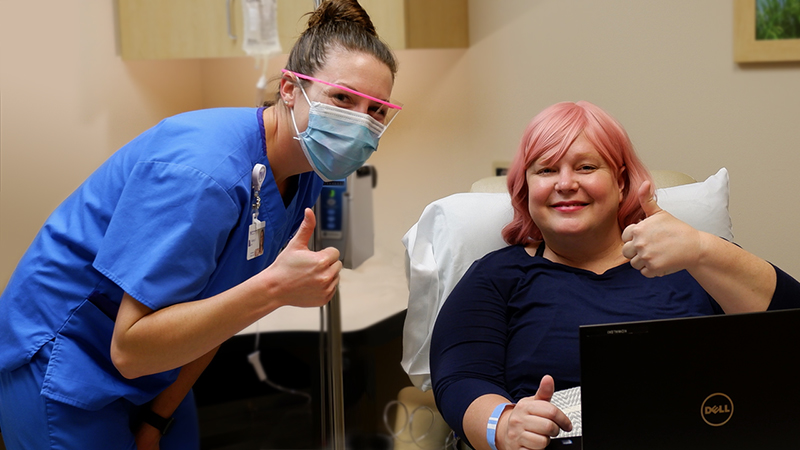Treatments
Ovarian Cancer Treatments
The treatment you receive depends on what stage of ovarian cancer you have. If the cancer is confined to the ovary or spread only to nearby areas, it is called local or early-stage cancer. If the cancer has spread to distant areas in the body, it’s called metastatic or advanced ovarian cancer. It is very important to talk to a gynecologic oncologist about your stage and suggested treatment plan. Ovarian cancer treatment options include:
- Surgery: Surgery to remove the tumor is almost always the first step in treating ovarian cancer. Your surgeon may remove one or both ovaries and possibly surrounding tissue and lymph nodes. Younger patients may be candidates for fertility-sparing surgery depending on the type of ovarian cancer and the stage of disease.
- Radiation therapy: Radiation therapy uses X-rays to destroy cancer cells or slow the rate of growth. It is rarely used to treat ovarian cancer, but it can be used to ease the symptoms of cancer. Women getting radiation for ovarian cancer usually have external radiation, which comes from a machine directed at the tumor from outside of the body.
- Chemotherapy: Chemotherapy uses drugs to slow the growth of or kill the cancer and reduce the chance of its return. Chemotherapy is recommended in most cases, even for early stage disease. It may be given intravenously or placed directly into the abdomen (intraperitoneal).
- High-dose chemotherapy and stem cell transplantation: These are done to remove stem cells from the patient's or a donor's bone marrow and re-infuse them into the patient to help in the production of healthy blood cells.




